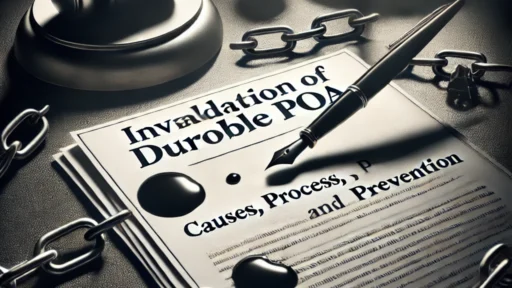Understanding legal documents can be a difficult task, especially when you are not very at home with lawyers’ talk as “residency affidavit.” But we can assist; we’ll explain it in the simplest way. The paper is a legal document, but it is more than just a legal jargon that could be able to be used in of many colors of lives.
This document, at its core, is a statement that is under oath, and it testifies that your residence is a fixed place. Usually, it is a part of legal, financial, or academic requirements. Thus, whenever you are making a loan, registering your son/daughter in a school, or facing some immigration-related difficulties, the knowledge of the term “residency affidavit” is essential to you. Hence, we are going to briefly talk about what a residency affidavit is and its significance.
Understanding the Basics of a Residency Affidavit
This section consists of the core elements of a residency affidavit, showing what it is and why it is a legal document.
Definition of a Residency Affidavit
Basically, a residency affidavit is a piece of paper that represents a person’s truth about their locality legally. It, in most cases, includes some key points, such as the person’s name, the address of the home, and the length of stay at such an address. The paper is signed by a legally competent person who is swearing at an official, usually a notary public. It is commonly used in cases that require proof of residence just to meet the statutory or organizational needs of a specific jurisdiction. That said, the examples include but are not limited to cases for child school enrollment, loan applications, and immigration papers.
The Legal Importance of a Residency Affidavit
When speaking of legal matters, the importance of a residency affidavit is really significant. In fact, as a piece of evidence, a residency affidavit could be weighed very heavily in the court. A common example is the use of an affidavit in child custody, specifically in divorce cases where the child’s residence may determine the person who gets custody. Besides, the paper is, further, significantly critical for the purpose of resolving immigration issues, rather, it indicates the person’s legal status in the state and his/her agreement with the existing immigration law. It is a document that is being heavily controlled because it takes very serious criminal charges that range from lying under oath to the way it ends up to a big amount of financial fines and in the worst case a long sentence, to provide wrong information in a residency affidavit. It is the law that makes it possible!
Elements Involved in a Residency Affidavit
Understanding the specific elements involved in a residency affidavit remains crucial for its creation and usage. Those elements will be further analyzed hereafter.
Necessary Documentation for a Residency Affidavit
It is really critical to obtain the right documentation for a residency affidavit. Some of the documents provide evidence of someone’s place of stay in the affidavit, thereby, enhancing its credibility. Basically, when it comes to the types of such documents it is usually the following :
Utility Bill- It is a document that gives details and is proof of occupation, proving the existence of a tenant with the name stated.
Lease Agreement- If the person is renting, a lease agreement has the details of the occupation of the tenant in that housing unit.
title deed- The name of the property owner is mentioned in these documents, which verifies the residence and are evidence to be presented.
Declarant or Affiant: The person who makes a statement of his residence in the affidavit. The truth of the document becomes his responsibility.
Notary Public: This is an official individual who confirms the signature on the affidavit and also is its witness.
Recipient: This person or a group of persons can be a court, a school, a bank, or an immigration office, whose business is to check through
Process of Obtaining a Residency Affidavit
Acquiring a residency affidavit, will require a person to go through the usual path of securing the document with which they will have to face various challenges in the process. Being more specific about the task in hand the following sections discourse on the point, of obtaining a residency affidavit, and the challenges that a person can face.
Ways of Applying for a Residency Affidavit
Selection of Required Papers: Choose documents that are clear in their residency status. Some of them might be utility bills, lease agreements, and property ownership papers.
Completion of the Residency Affidavit Form: Write every single detail on the form, your name, your address, and the length of time you have been living there.
Authorization of the Affidavit: Take documents and the completed form to the notary public. In the end, the notary is supposed to sign the affidavit as a confirmation that it is correctly filled and that the data is true and then the document will have legal force.
Transmittal of the Affidavit: Present the affidavit to the concerned authority after it has been signed and notarized. Depending on the purpose of the affidavit, it may be a government office, a bank, or a school.
Waiting for an Answer: It is your turn now to get the word back from the concerned authority which could be a few weeks depending on the situation.
Getting Proof of Residence, the Right Way: It is really hard to get the necessary proof of residence documents, especially when it’s a matter of a very short period of time.
Learning Legal Jargon: The completion of the affidavit form requires the understanding of difficult legal words, especially when done by people who are not lawyers.
Locating a Notary: A notary public is hard to come by quickly in less dense population areas, periods, or situations;
- Getting the document verified by a public notary is a good way to go in reaching anywhere you want whose help is crucial for the document
There are quite a few reasons for what a public notary may not be reachable like the fact that they are located in a faraway place and there is no means of travelling there (As Sibatullah, a rural Balochistan citizen, is faced with the same condition).
Those three core documents are the government mandate to the employer and the employees, as well as the employees serving as a declaration that they do not have sickness before starting work, and that they will not spread it to their workplace. In addition, the provided documents also show, without long delays that Mr. Yan is the main employee of the company, who is also the co-signer of the contract.
Anyway, tokens of primary importance are these three documents
Rights as an Owner:
The owner of certain business entities rule the day when it concerns their entities, and they are their very own highest authority.
Therefore, a company that verifies the ownership of the members is confirmed by its members, as part of their firm they have the right and therefore, are the true decision-makers of the firm.
Transfer: An Eligible Circumstance
When you do not take leave in Classis Services, they will call a meeting after having made the necessary arrangements. It is for transfer where the team just got a new member and the former one got a project assigned to him.
However, no move can be made without the team’s approval. In case the decision is made in agreement with the company’s policy and there is no repudiating of the proposal, the single member of the team shall determine the person who will play a particular role as well as his/her role.
reshow much their monthly expenses are and where their precious dollars are going.
Immigrant and Non-immigrant Issues
In the case of immigrants and non-residents, people often resort to residency affidavits to prove their living place stability and continuous stay in the country. These documents are also very important in immigration proceedings or when one is applying for different benefits and programs which are dependent on residency.
For instance, an immigrant who is an applicant for naturalization in the United States may be required to submit a residency affidavit to prove that the period for which the residence was held as required has not been broken, which is usually for five years. The affidavit can clarify that the person has lived at his stated location for most of that time, thereby boosting his U.S. citizenship application.
In the same way, the residency affidavit becomes the instrument through which non-residents can give their official domicile (the place where they have legal rights to live) in situations where residency status is an issue. A typical case is that of a non-resident of Connecticut who is a student of a state college and who might use a residency affidavit to convince the authorities of their in-state tuition eligibility, showing that they had stayed within Connecticut in the last 12 months. The document, which was entrusted to a trustworthy third party who signed it, is a weapon in the student’s quest for a tuition fee waiver.
Different Ways for Filling Out a Residency Affidavit Correctly
The successful filling process of a residency affidavit can resolve multiple application processes. An eye for detail gives a guarantee of perfect document submission and prevents future complications related to mistakes and missed parts of the application.
Securing the Notary Public’s Sign
Notarization is one of the most definitively valid elements of your sworn statement affirming your residency. With the help of a professional notary public, the affiant swears or affirms the truthfulness and accuracy of the affirmations made under penalty of perjury. Before getting the affidavit notarized, make sure that everything is correct and that the spelling of the names is right and the addresses are accurately stated. While the affidavit is being notarized, the affiant’s presence is compulsory which ensures the notary public that it is, in fact, the person who is signing the document.
Special Cases Management
In a few special situations, legal orders, exemptions, or immigrant status can modify the standard procedure of completing the affidavit. An example is the situation of asylum seekers who might be in want of basic papers such as utility bills and lease agreements, yet they still have to prove their residency. In such cases, other means of verification like certification given by landlords, neighbors, or employers can serve as supplementary evidence to the affidavit. Hence, the understanding of the special situation of the seeker will lead to a correct form of documentation and submission.
Find out about the Power of BlueNotary.
Take your Business, Title Company, or Law Firm to the Next Level. Gain customers Po
that are satisfied and Reduce Turnaround
Get a document Notarized/Sign-up
Join the Free Notary Training Facebook Group
Conclusion
The affidavit of residency serves as an official statement of fact. The paper indicates the true legal position of the person with regards to residence. It can be achieved in a variety of ways, and it should not be overlooked as it has legal implications and potential penalties for giving false statements. The process may seem like a big task but with the right mindset and knowledge of the process, it is, in fact, a manageable job. The procedure goes from collecting the necessary documents to notarizing the affidavit, which is essential in its validity.
It doesn’t matter if you are a parent, an immigrant, or a non-resident student, obtaining a residency affidavit is quite a serious matter and one can’t stress the value of it too much. Thus, do it with the respect and be aware that every single detail is important. Actually, this paper at the end is a deposition of yourself in the world who belongs at a particular place, and thus, who is right where she or he is.
FAQs
What does a residency affidavit mean?
A residency affidavit is a document that is official and can tell where a person lives legally. Additionally, it mentions all the necessary details like the name of the person, the address, and the period dwelling in that place. It is confirmed by an authorized person often a notary public and is very important for legal and financial cases.
Why is it very important to have a residency affidavit?
The document of residency is a majority because it is a way to swear under oath in the court, and thus it is a piece of evidence you have in addition to the law. It also aids in numerous other cases like loan applications, school enrollment, and immigration issues. If the information is wrong, you can easily be caught in legal trouble and will have to pay a penalty (fines are often imposed).
What are the papers required for a residency affidavit?
To get the proof of residency, the person has to produce documents like utility bills, tenant lease agreements, and a declaration of homeownership. These things are used to confirm the address of the declarant.
How do I write a residency affidavit myself?
Writing a residency affidavit is the first thing to be done that requires having the required documents at hand, filling in the affidavit form correctly, then the form is notarized by an authorized officer, after which the affidavit is handed to the authority in question and their response is waited for until they reply back.
Where do they use the affidavit of residence?
The most common use of the affidavit of residency is enrolling in a school and matters related to immigration. For example, a parent may have to get a residency affidavit to confirm that his or her child is indeed living in a school district. Similarly, an immigrant may need it to prove that he has been in one place during immigration proceedings.
Is there a guideline available on how to fill a residence affidavit?
To avoid mistakes and omissions, make sure you are careful and meticulous when working on the affidavit. Be there during notarization and check everything twice. Sometimes in extraordinary cases where the standard documents are not available, you may collect pieces of evidence from either the landlord or neighbors.








